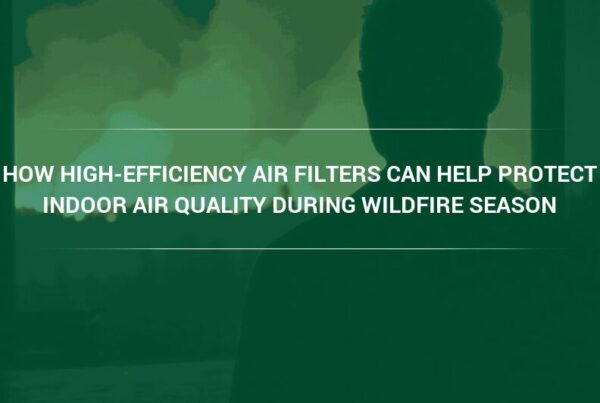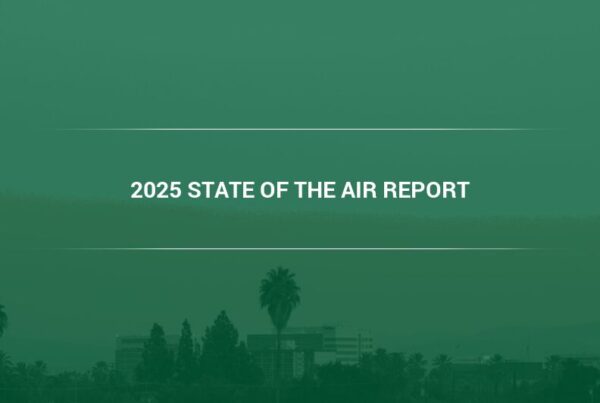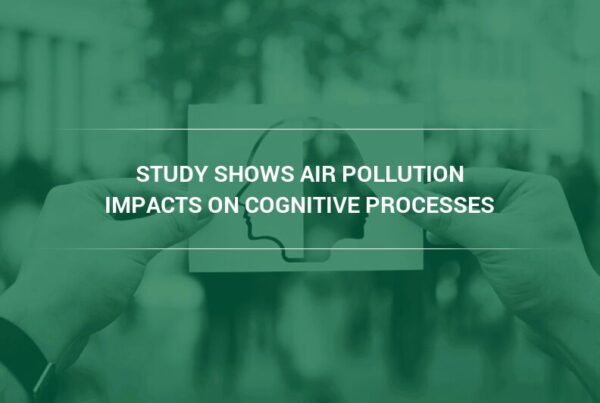A group of doctors has warned that poor indoor air quality is linked to climate change. Learn how high-efficiency air filters can help.
In August last year, a group of doctors endorsed an article for The Conversation, warning against the dangers of climate change on public health and safety. The article theorizes that as climate change continues to disrupt climate patterns , it is causing more frequent droughts, storms, and wildfires, all of which theoretically ruin the world’s ecosystems. Climate change is also threatening hospitals and the sick and vulnerable patients that they treat. It’s a warning that echoes the findings of a study conducted by researchers from the University of California, Riverside and published in the journal Nature Climate Change, which found that climate change also has the effect of driving up levels of aerosols and particles in the atmosphere that lead to air pollution. This could make high-efficiency air filters indispensable in hospitals and healthcare facilities.
The article, written by James Dunk, a research fellow at the University of Sydney, offers a commentary of a recent editorial piece published in the New England Journal of Medicine, highlighting the fact that hospitals are not safe from ‘the environmental chaos unfolding outside.’
How Climate Change Could Affect Outdoor and Indoor Air Quality
The editorial piece’s warning on climate change paints a grim picture of what the future could look like if nothing is done to fight climate change. And, contrary to popular belief, the environment’s impact on outdoor and indoor air quality, and, subsequently, public health, has long been known.
In 1989, Alexander Leaf, a professor of preventive medicine at Harvard University and leading member of the Physicians for Social Responsibility and the International Physicians for the Prevention of Nuclear War, wrote an article for the New England Journal of Medicine talking about the negative effects of global warming, ozone depletion, and air pollution.
Leaf argued that if the planet’s natural systems could no longer support humanity’s population growth and surge in consumption habits, human bodies won’t fare any better. In the article, Leaf also asked his colleagues in the medical field what the doctor’s role would be in a world where environmental impacts are crossing into the realm of public health.
Why More Efficient Air Filters May Be Necessary in the Future
The trend of climate change points to a future where winters are longer and harsher, while summers are hotter and drier. This creates the perfect recipe for air pollution to thrive the whole year-round. It also means that more efficient air filters will have to be more prevalent.
The University of California study states that an increase in greenhouse gases in the atmosphere doesn’t just cause the land to warm faster than the ocean, it’s also contributing to increased continental aridity. This strengthening of dry conditions, which, by the way, also lasts longer, naturally results in a reduction in cloud cover and rain, which is the primary way for aerosols to be dispersed in the atmosphere.
To verify their initial hypothesis, the researchers conducted climate change simulations under two different situations. The first simulation followed what happens in real life, with land warming increasing continuously. The second simulation looked at a scenario where the land warmed much less than normal.
The results of the first simulation showed that the increase in land warming similar to the rate happening now also increased continental aridity and led to a subsequent rise in aerosols that form air pollution. The second model, however, showed a minimal increase in continental aridity and air pollution levels.
This led the researchers to conclude that there is strong evidence that air pollution is directly associated with land warming and continental aridity.
Using Industrial Air Filtration Systems in Hospitals
Going back to Dunk’s article on The Conversation, his warning that air pollution will affect hospitals and patients highlights why healthcare facilities need industrial air filtration systems in the first place.
“Many public hospitals in large urban areas were constructed years ago, when ventilation systems were not as highly advanced as they are today,” explains a representative for Camfil USA. “As a result, the air drawn into the hospital may be carried through the outdated ductwork and other systems that have long since been improved upon. So, common pollutants such as dust mites, dirt, pollen and airborne bacteria can more readily circulate through the vents.”
Hospitals that provide specialized care to patients with sensitive conditions are especially vulnerable to poor air quality, as contaminants in the air could exacerbate patient symptoms or worse, lead to death.
Look for Trusted Commercial air filtration systems air Filter Manufacturers
If your hospital, clinic, or healthcare facility needs to have commercial air filtration systems installed, it’s important to look for a trusted air filter manufacturer that understands the containment needs of these facilities.
At Camfil USA, we have decades of experience developing and building air filter systems for a wide variety of applications, including healthcare. Get in touch with our team to explore our catalog of commercial air filters and get the best solution for your needs.



